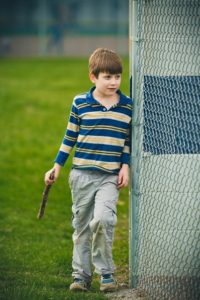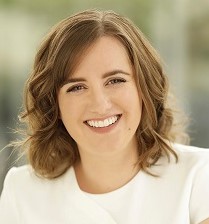According to the DSM 5, the first criteria for Autism Spectrum Disorder (ASD) refers to a deficit in social communication and social interaction.
This speaks to the difficulties in building social relationships which is present in those individuals with Autism Spectrum Disorder.
The individual will often demonstrate a delay in social maturity and social reasoning, as well as an inability to display empathy. Communication is usually a challenge, as is emotional control.
With all these characteristics occurring it is not surprising that an individual with ASD will have difficulty making friends and even be subjected to bullying by others.
The number of people present in a social interaction will make a significant contribution to how manageable it is to someone with ASD. A one-on-one conversation is definitely easier, as the individual can use their limited ability to process social cues and non-verbal communication, and use memory of similar social situations, to manage the situation.
Once another person enters that conversation however, things start to get out of hand as the social cues and non-verbal communication are moving too quickly for them to process. Before long the person with ASD has become out of sync with the conversation, made an obvious social error, or has decided that withdrawal is a safer option.
What About Friends?
As far as friends go, individuals with ASD will have fewer friends than their peers, and their understanding of the concept of a friend is about two years behind that of others their age.
Additionally, they will commonly have friends in an unusual way, preferring to have friends who are younger than they are, or they will spend their time in the company of adults.
Another interesting observation is that a person with ASD will often misinterpret “friendliness” for “friendship”.
In general, individuals with ASD are often described as socially clumsy, as they have a lack of understanding about normal social cues such as sharing, reciprocity and cooperation. This can lead to being socially isolated in playgrounds, either by choice, or actively by their peers despite wanting to become actively involved.
Tips for Building Social Relationships
There are various interventions available to address these limitations in social communication and social interactions. For example, for younger children, these include:
- An adult acting as a friend – it is possible for an adult to engage in social play with the child by pretending to be an age peer. The child is taught how to behave in a reciprocal way. While playing in the social situation the “friend” can even pause the play to act as a stage director or mentor, to explain a social cue.
- Turn taking and asking for help – ensure modelling of turn-taking occurs with the adult “friend” and with other adults. It includes making a deliberate mistake and demonstrating being unsure of what to do, as this enables modelling of the social skill of asking for help.
- Dress rehearsal with another child – once the play has been practised with an adult, the child is ready to practise with another child. This could be an older sibling, or another child in the class, before taking place openly with their peers. The adult can move freely around providing guidance and advice.
- Encouragement – Usually, little encouragement is available for social situations so when practising it is important to provide this for children.
- Social Stories – This example provides assistance with social cues, thoughts, feelings and behaviour from a script in a written form. This describes a scenario, skill or social cues, perspectives or common social responses in a style and format that is easily understood by the child.
A psychologist has the training and experience to help a child or individual with Autism with the skills necessary for building social relationships. (If you or your child’s school suspects your child has Autism Spectrum Disorder, you can find out more about the ADOS assessment here.)
 Author: Sharyn Jones, B Psych (Hons).
Author: Sharyn Jones, B Psych (Hons).
Sharyn Jones is a Brisbane psychologist with 10 years of experience working with adults, adolescents, children and their parents. She is a trained practitioner in Triple P parenting strategies, and enjoys helping children and individuals with ASD around building social relationships.
To make an appointment try Online Booking. Alternatively, you can call Vision Psychology Brisbane on (07) 3088 5422.
References:
- Attwood, T. (2007). The Complete Guide to Asperger’s Syndrome. London: Jessica Kingsley Publishers.